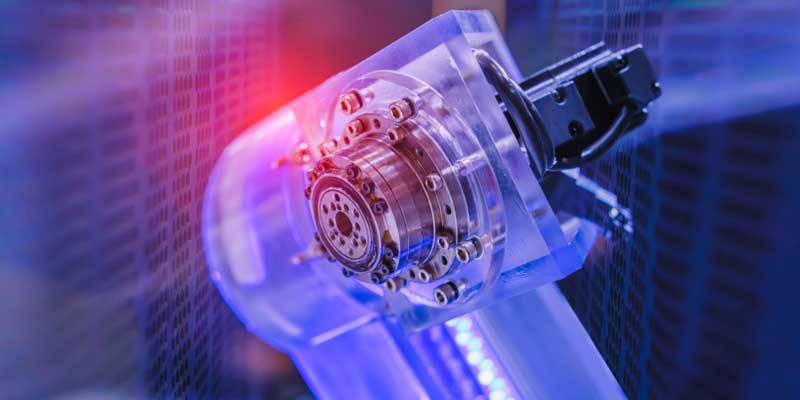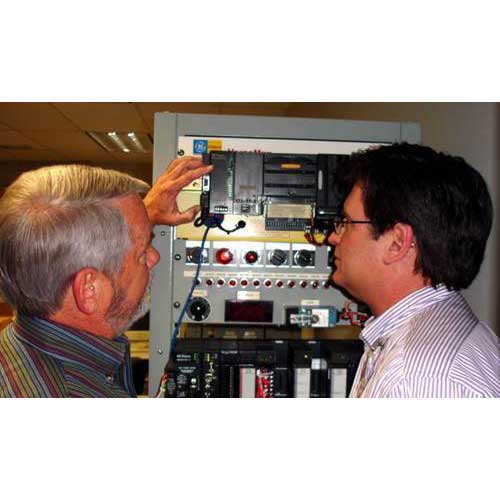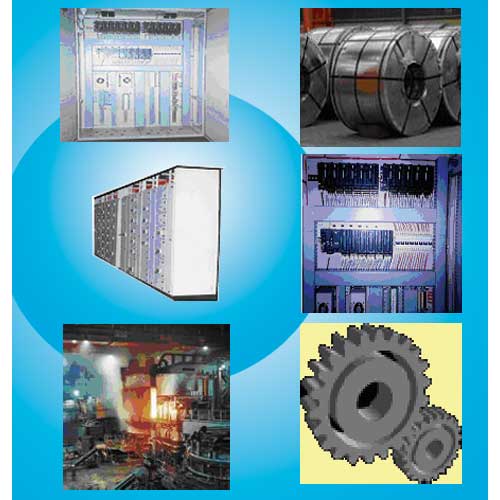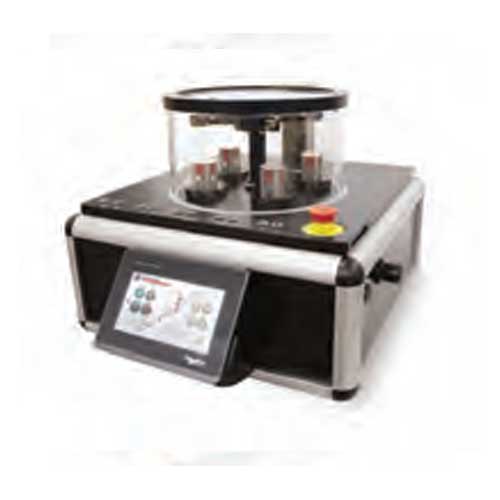Schedule a Call Back
Auto Components Industry on a roll
 Technical Articles
Technical Articles- Nov 30,-1

Combined with a proactive government policy and the increasing investments by OEMs, there are several triggers which will push the Indian auto component industry to a new high.
If there had been fears that the demonetisation drive by the government would push several industrial sectors into a downward spiral, especially the automotive and automotive components’ industry, these have been laid to rest. In fact, according to a recent report published by credit rating agency ICRA, the Indian auto component industry, in particular, is expected to register growth of 8-10 per cent in the next fiscal. A rider is that the recent ban on diesel vehicles in the NCR and additional levy of 1-4 per cent infrastructure cess on passenger vehicles in the Union Budget will impact the overall demand momentum in the passenger vehicles (PV) segment, which accounts for bulk of the domestic original equipment (OE) demand for auto components. However, over the medium to long term, growth in the auto component industry will be higher than the underlying automotive industry growth given the increasing localisation by OEMs, higher component content per vehicle and rising exports from India, says ICRA.
Commenting on the industry status, Subrata Ray, Senior Group Vice President, Corporate Ratings, says, “Over the medium term, ICRA expects OPBDIT margin for the auto component industry to stabilise at 14-14.5 per cent level, given the expected bottoming out of commodity prices in the current year.” In FY2017, the rural demand (impacting motorcycles, tractors and passenger vehicle segments) will be contingent on monsoon, though government efforts in the Union Budget of FY 2017 could benefit the rural economy. Further, with anti-locking braking system (ABS) becoming mandatory in 125 cc+ two-wheelers from April 2018, the domestic ABS market will witness exponential growth. Also, increasing awareness regarding safety aspects and likely implementation of mandatory crash test for passenger vehicles will further drive demand for ABS in PVs.
At present, ICRA estimates ABS penetration of 30 per cent in the PV segment and minimal (less than 5 per cent) in the two-wheeler segment. The ABS market could turn out to be an Rs 6,500 crore opportunity for suppliers by FY 2019 against the backdrop of implementation of safety regulations. In fact, the Indian auto components industry has experienced healthy growth over the last few years. Some of the factors attributable to this include a buoyant end-user market, improved consumer sentiment and return of adequate liquidity in the financial system. The auto components industry accounts for almost 7 per cent of India’s Gross Domestic Product (GDP) and employs as many as 19 million people, both directly and indirectly. A stable government framework, increased purchasing power, large domestic market, and an ever increasing development in infrastructure have made India a favourable destination for investment.
The Indian auto components industry can broadly be classified into the organised and unorganised sectors. The organised sector caters to the original equipment manufacturers (OEMs) and consists of high-value precision instruments while the unorganised sector comprises low-valued products and caters mostly to the aftermarket category. Over the last decade, the automotive components industry has scaled three times to USD 39 billion in 2015-16 while exports have grown even faster to USD 10.8 billion. This has been driven by strong growth in the domestic market and increasing globalisation (including exports) of several Indian suppliers.
According to the Automotive Component Manufacturers Association of India (ACMA), the Indian auto components industry is expected to register a turnover of USD 100 billion by 2020 backed by strong exports ranging between USD 80- USD 100 billion by 2026, from the current USD 11.2 billion. The cumulative foreign direct investment (FDI) inflows into the Indian automobile industry during the period April 2000 – September 2016 were recorded at USD 15.80 billion, as per data by the Department of Industrial Policy and Promotion (DIPP). There have been some major investments in this sector. For instance, Gestamp, a Spanish auto component manufacturing company, has invested Rs 260 crore (USD 38.63 million) in a new hot stamping plant in Pune, in order to cater to the increasing demand for lighter vehicles in India. Many such investments details have been listed in a report published by India Brand Equity Foundation (IBEF). For example, Exide Industries, India’s biggest automotive battery maker, plans to invest around Rs 300 crore (USd 45 million) in West Bengal to expand its capacity for advanced motorcycle batteries over a period of 18 months.
Motherson Sumi Systems Ltd., an automobile components manufacturer, has acquired Finland-based truck wire-maker PKC Group for Euro 571 million (USD 609.57 million), which will help the company expand its presence in the global wiring harness business for commercial vehicles. Sundaram Clayton, part of the TVS Group, plans to invest USD 50 million in US and Rs 400 crore (USD 59.76 million) in India over the next three years. Mercedes Benz India Private Limited has set up India’s largest spare parts warehouse in Pune, with an area of 16,500 square meters which can stock up to 44,000 parts. It will also include a vehicle preparation centre that can stock up to 5,700 cars to customise them before delivery.
JK Tyre and Industries Ltd, India’s leading tyre manufacturer, has acquired Cavendish Industries Ltd (CIL) for Rs 2,200 crore (USD 329.2 million), which will enable JK’s entry into the fast-growing two-wheeler and three-wheeler tyre market. Japanese auto major Honda is planning to step up supply and target exporting of auto components worth Rs 1,500 crore (USD 224.45 million) from India to it various international operations. Auto components maker Bharat Forge Ltd. (BFL), the flagship company of the USD 3 billion Kalyani Group, has formalised agreement with RollsRoyce which will supply BFL with critical and high-integrity forged and machined components.
Canada’s Magna International Incorporated has started production at two facilities in Gujarat’s Sanand, which will supply auto parts to Ford Motor Co. in India. Everstone Capital, a Singapore-based private equity (PE) firm, has purchased 51 per cent in Indian auto components maker SJS Enterprises for an estimated Rs 350 crore (USD 51.35 million). ArcelorMittal signed a joint venture agreement with Steel Authority of India Ltd (SAIL) to establish an automotive steel manufacturing facility in India. German auto components maker Bosch Ltd. opened its new factory at Bidadi, near Bengaluru, which is its fifth manufacturing plant in Karnataka. The company has also signed a memorandum of understanding (MoU) with Indian Institute of Science (IISc), Bengaluru with a view to strengthen Bosch’s research and development in areas including mobility and healthcare thereby driving innovation for India-centric requirements.
French tyre manufacturer Michelin announced plans to produce 16,000 tonnes of truck and bus tyres from its Indian facility this year, a 45 per cent rise from last year. Amtek Auto Ltd. acquired Germany-based Scholz Edelstahl GmbH through its 100 per cent Singapore-based subsidiary Amtek Precision Engineering Pte Ltd. MRF Ltd. plans to invest Rs 4,500 crore (USD 660.231 million) in its two factories in Tamil Nadu as part of its expansion plan. Hero MotoCorp is investing Rs 5,000 crore (USD 733.59 million) in five manufacturing facilities across India, Colombia and Bangladesh, to increase its annual production capacity to 12 million units by 2020.
Or take the case of Fleet Gaskets India, which is a major player in the gasket export market with 98 per cent of its business from overseas. The company is going ahead with plans to set up its third manufacturing facility in India, in Faridabad, Haryana. The Tier 2 supplier of varied automotive sealing gaskets including cylinder head gaskets, exhaust gaskets, intake and exhaust manifold gaskets and wire-mesh gaskets, to name a few, closed FY2016-17 with a year-on-year growth of 32 per cent in exports. The company, which currently has two manufacturing plants – one each in Haridwar and Delhi – expects the 40,000 square feet Faridabad unit to become operational by June 2018. According to Vijay Chopra, Managing Director, Fleet Gaskets India, the new facility will see the use of new-age manufacturing techniques for gasket production.
The company will make the shift to laser cutting and water-jet cutting machines, from the existing hydraulic and power press machines, which it currently deploys. The new equipment is to be imported from Germany and would offer improved precision and quality, at reduced cycle times. The company, which currently offers its range of products in the commercial vehicle (both LCV and M&HCV) space and also for passenger vehicles, has its predominant customer base in the form of German OEs, which provide 60 per cent of its revenues. The remaining business is roughly equally split between exports to the US and UK.
Commenting on the status of the Indian auto components industry in India, Rattan Kapur, Director, Mark Exhaust Systems Ltd. and President, ACMA, states, “The automotive industry is an engine of growth for the Indian economy. The auto component industry contributes 25.6 per cent to the manufacturing GDP and 2.2 per cent to national GDP, providing direct employment to 1.5 million people. Over the years the component industry has adapted well to the changes in the policy and regulatory environment and the needs of its customers. To realise their ambition of graduating from being a build to print to one that is art to part, the auto component manufacturers must focus on research and development to help generate IP in India and in the process, create greater returns than the cost of capital to make India an attractive destination for investments.”
According to Kapur, “The ‘Make in India’ campaign of the government has enthused the entire manufacturing sector. Focus on ease of doing business, implementation of GST and other reforms augur well for the component manufacturing industry. While the last year had significant challenges for the sector, the component industry fared reasonably well with exports scaling to USD 11.2 billion and an overall turnover of USD 38.5 billon. Aimed at an holistic growth model for the automotive industry, the Automotive Mission Plan (AMP 2026) has set a target of a turnover of USD 200 billion by 2026 for the auto component sector backed with strong exports ranging between USD 70 -80 billion.”
Taking a strong initiative, this year ACMA has adopted ‘Make Quality and Technology in India’ as its theme. “We would endeavour to focus on strengthening our capabilities for new product development, improving quality standards, evolving our technology for meeting the evolving emission and safety standards, upgrading people skills to support domestic and global expansion of OEMs, building auto electronics manufacturing capabilities, and embracing digital technology in manufacturing to transform productivity, thus enabling our industry and India become an attractive destination for investments. This calls for a more collaborative approach between the various stakeholders of the value chain i.e. component manufacturers, OEMs, machine tool suppliers, the raw material industry and the government,” Kapur states.
Providing more information about the auto component industry, Vinnie Mehta, Director General, ACMA, has this to state, “To help the auto component industry, the government has announced a slew a reforms in the Union Budget 2015 and the Foreign Trade Policy 2015. Forward-looking policy measures such as announcement of introduction of GST, consolidation of various exports schemes, simplification of procedures to help integrate India into the global value chain, improving ease of doing business through online and e-governance interventions and reducing the transaction costs augur well for the industry. With reforms gathering momentum, the growth in the automotive industry is imminent. However, we need to ensure that the industry, especially our Tier2 and Tier3 are ready for the next growth cycle. That apart, focus on innovation and R&D are critical to help the industry leapfrog to the next level. Going forward, we envision of making India into a global export hub because of our inherent strengths of frugal engineering, cost advantages and quality benefits that India can provide to the rest of the world. With this vision in place the auto component industry is all set to be the engine for India’s economic growth.”
In fact, the Government of India’s Automotive Mission Plan (AMP) 2006–2016 has come a long way in ensuring growth for the sector. It is expected that this sector’s contribution to the GDP will have reached USD 145 billion in 2016 due to the government’s special focus on exports of small cars, multi-utility vehicles (MUVs), two and three-wheelers and auto components. Separately, the deregulation of FDI in this sector has also helped foreign companies to make large investments in India. This plan envisages creation of an additional 50 million jobs along with an ambitious target of increasing the value of the output of the sector to up to Rs 18,89,000 crore (USD 282.65 billion).
This spells a good road ahead. As per the IBEF report, the rapidly globalising world is opening up newer avenues for the transportation industry, especially while it makes a shift towards electric, electronic and hybrid cars, which are deemed more efficient, safe and reliable modes of transportation. Over the next decade, this will lead to newer verticals and opportunities for auto component manufacturers, who would need to adapt to the change via systematic research and development. The Indian auto components industry is set to become the third-largest in the world by 2025. Indian auto component makers are well positioned to benefit from the globalisation of the sector as exports potential could be increased by up to four times to USD 40 billion by 2020.
– HUNED CONTRACTOR
Related Stories

Revolutionising HVAC efficiency with renewable energy and low-carbon materials
HVAC systems, crucial for maintaining indoor comfort, have long relied on fossil fuels, raising concerns about environmental impact and energy efficiency. Even so, a transformative moment, aptly cal..
Read more
Boehlerit: Know-how in cutting of tubes
In order to cover the different machining steps, Boehlerit has, over the decades, as the industry’s leading tool supplier, created the market’s most comprehensive product range, now also includi..
Read more
Increasing automation drives servo motors demand
The market for servo motors was significantly influenced by the growing use of automation across a number of industries, including manufacturing, automotive, electronics, and packaging, says Adroit ..
Read moreRelated Products

Factory Automation Service
Frontline Technologies offered factory automation services.

Automation Solutions
Rechner Automation Systems Pvt Ltd is a one stop provider of industrial automation solutions. Read more

Electrical Equipment for Vacuum Tests Atc01 by Vuototecnica
A C Automation offers a wide range of electrical equipment for vacuum tests atc01 by vuototecnica.











